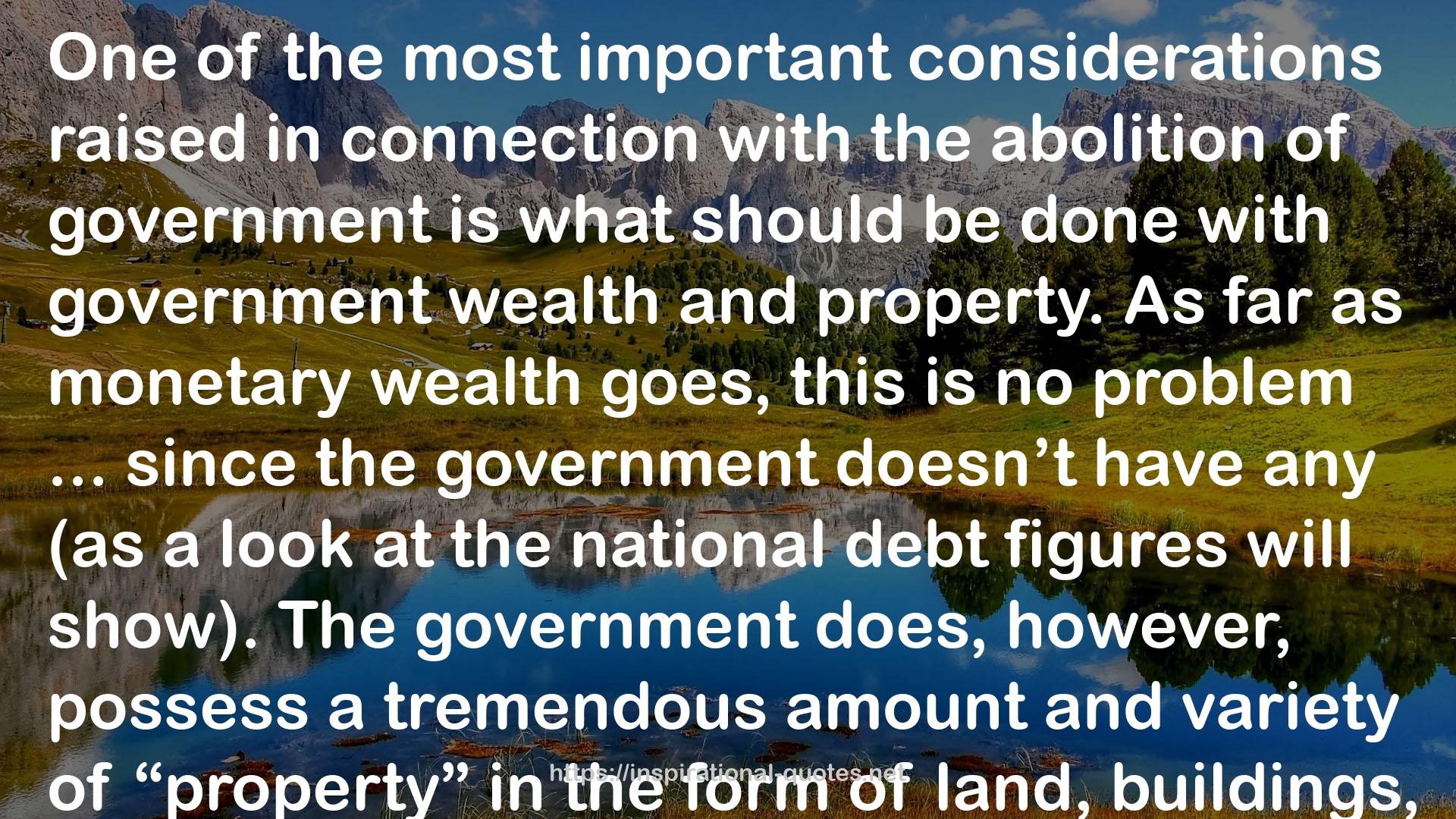" One of the most important considerations raised in connection with the abolition of government is what should be done with government wealth and property. As far as monetary wealth goes, this is no problem ... since the government doesn’t have any (as a look at the national debt figures will show). The government does, however, possess a tremendous amount and variety of “property” in the form of land, buildings, roads, military installations, schools, businesses such as the Post Office, Government Printing Office, and hundreds less well-known, prisons, libraries, etc., etc. Though these items are in the temporary possession of whatever bureaucrats happen to be in charge of them, they are not actually owned by anyone. “The public” is unable to own them, since nothing can be owned by a collective myth like “the people.” Politicians and bureaucrats don’t own them for the same reason that a thief doesn’t rightfully own the property he has stolen. “Public property” is actually unowned potential property. Since valuables in the possession of government are not actually owned, it would be perfectly proper for anyone to take possession of any piece of “public property” at any time that the government became too weak or careless to prevent him from doing so. The man who took possession of a piece of former “public property,” claiming it and marking it as his own for all to see, would become the rightful owner of that property. "
― , The Market for Liberty
